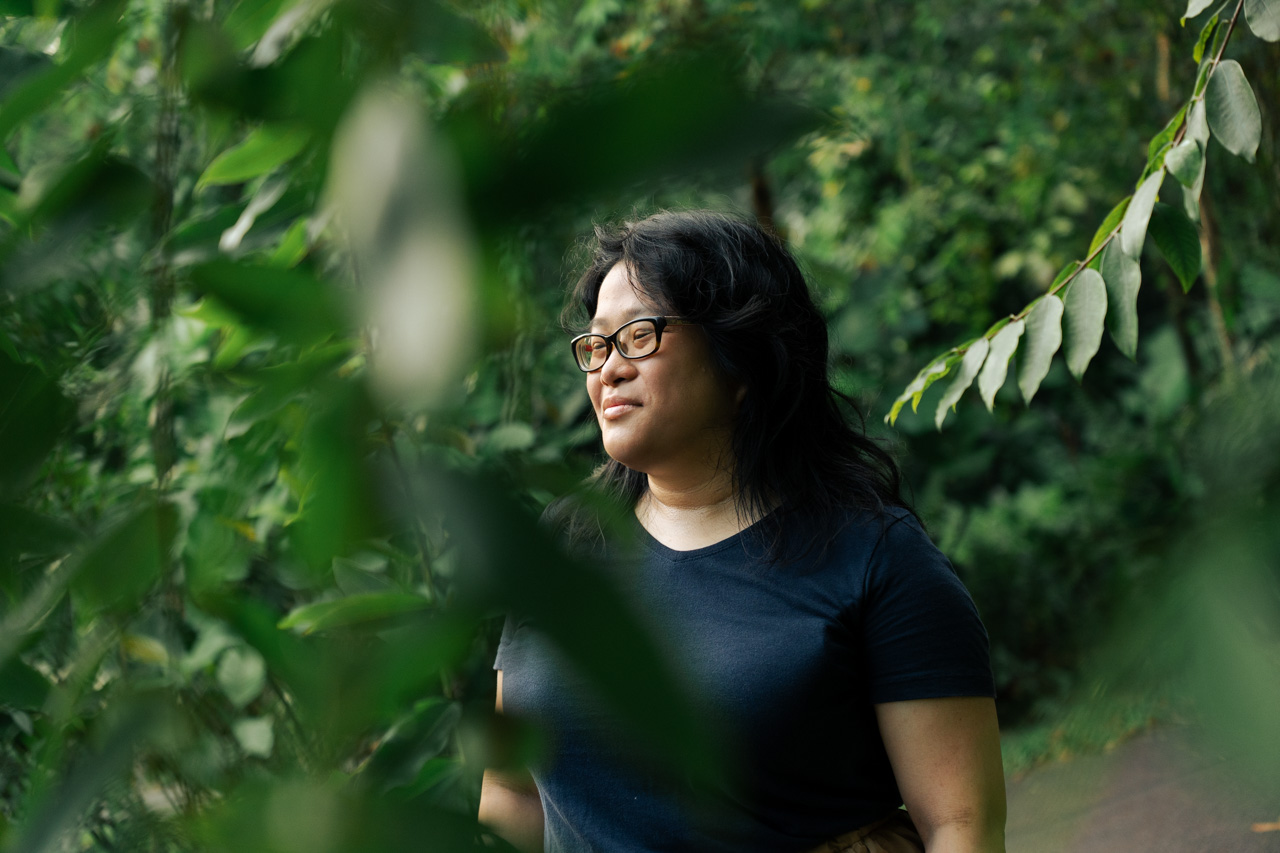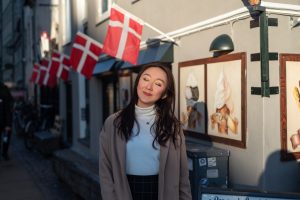All images by Justin Tan for RICE Media.
Ursula Soh lets out a frustrated sigh as she opens up about her struggles with eczema. She’s already spent more than a decade itching for a treatment that actually works for her.
It was only last year that the 34-year-old found a successful treatment: phototherapy—a treatment for eczema that uses ultraviolet light to reduce inflammation and itchiness. Even then, the journey to get there was a tedious one.
“Are doctors really waiting for us to be in a jialat condition before they tell us there’s another alternative?” she exclaims.
“Before phototherapy, all the doctors would recommend oral or topical steroids. Not only are there so many other treatments I need to try… What’s the point if I have to keep going back [to the dermatologist] when you prescribe me the same thing that doesn’t work?”
The frustration of cycling through ineffective treatments is all too familiar for those with chronic eczema in Singapore.
Yong Qiao Qing, 38, knows this firsthand—not just for herself, but for her children too.
In her early 20s, a work trip to Russia exposed her to an extreme temperature shift, causing her skin to peel and flake. She had always known she had sensitive skin and a dust allergy, but she had never experienced a reaction this severe.
Shocked by the flare-up, she started visiting various dermatologists and doctors who diagnosed her with mild eczema and prescribed her steroids—a standard remedy to reduce inflammation, ease itching, and help the skin heal.
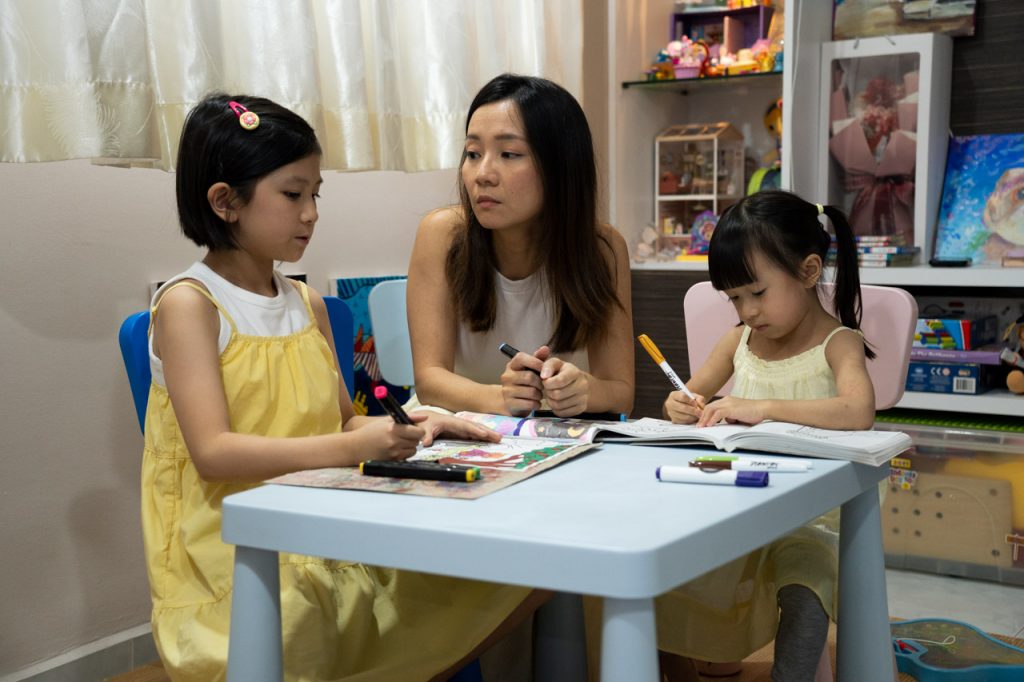
While her condition was mild and manageable, the same could not be said for her two daughters. Both were born with severe eczema.
“I introduced cow’s milk formula to my first daughter, and almost immediately, she broke out in rashes all across her body,” Qiao Qing recalls. “She was only a month old.”
It happened again when Qiao Qing had her second daughter in 2020. As a newborn, it seemed like things were in the clear—until the nurses took the child for her first bath.
“I saw the rashes and I knew. She had eczema too.”
For both Ursula and Qiao Qing, the constant fight to manage eczema for themselves and their loved ones has turned into a costly routine in Singapore. And they’re hardly a minority.
According to both KK Women’s and Children’s Hospital and the National Skin Centre, there appears to be a rising number of patients with moderate to severe atopic eczema. In a climate as hot and humid as ours, it’s one of the worst conditions to endure—especially when the skin starts to ooze, crust over, peel, and bleed.
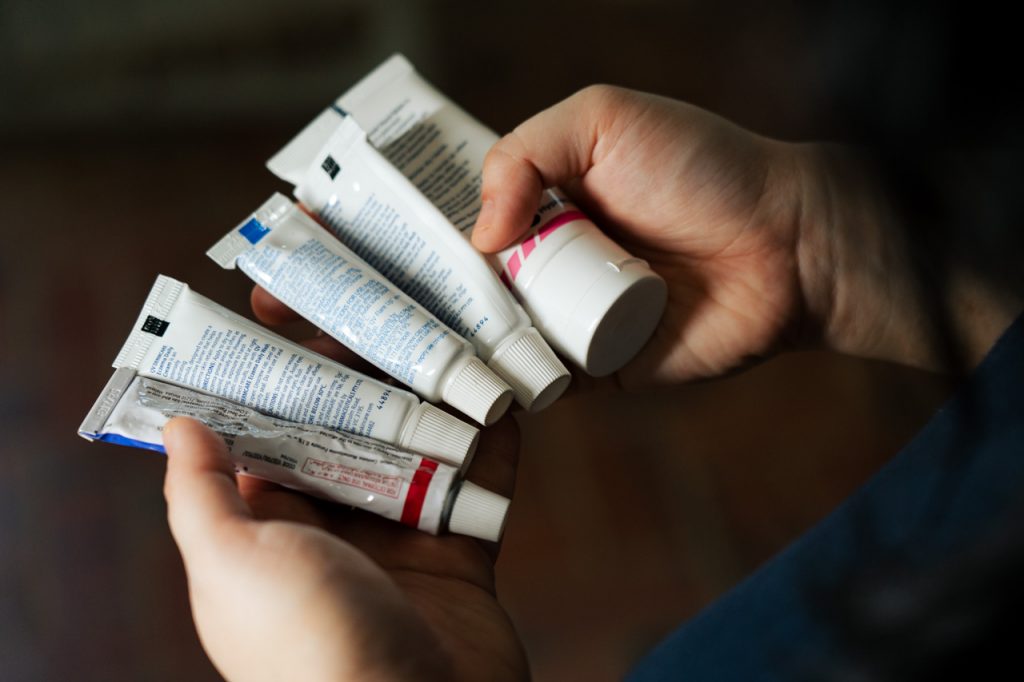
There is no one-size-fits-all solution. Treatment options range from moisturisers and immunosuppressants to lifestyle changes and experimental therapies.
But with the constant cycle of prescriptions and mounting costs, the question remains: What does it really take for a Singaporean with eczema to find relief and some sense of normalcy?
Skin in the Game
Ursula remembers the joy of living overseas. At 16, she moved to China for two years, and then to Sydney for a year to complete her studies. The cooler weather and nearly non-existent humidity allowed her to live her life fully.
“I went cycling!” she recalls excitedly. “I managed to do so many different things. I even went camping. I really felt like the horizons opened up.”
By the time she returned to Singapore in 2008, she had almost forgotten she had eczema. At least, until she applied for a job as a clothing stall assistant at an outdoor market in Holland Village.
It was a rude awakening for her when the flare-ups returned, worse than ever. It was the most severe episode she had experienced, forcing her to finally see a dermatologist.
“I blame myself,” Ursula sighs.
“If I hadn’t taken the job [at the market], this wouldn’t have happened. It took a few years—not months—before the flare-ups disappeared. It affected my sleep; I was scratching all the time, and my bedsheets were bloody.”
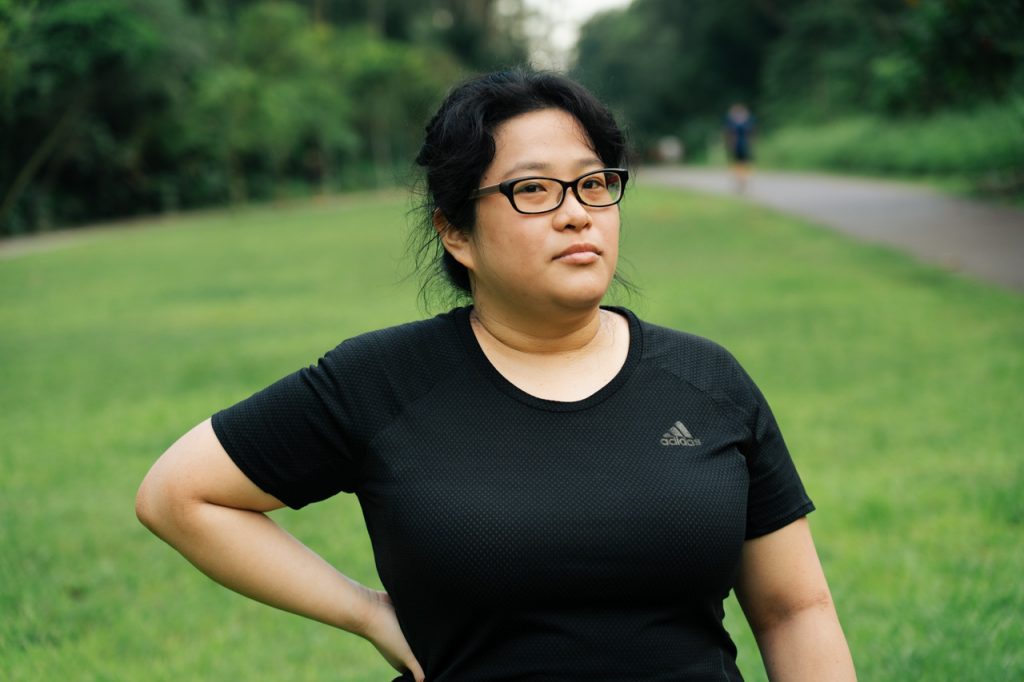
For someone who loves hiking and being in nature, avoiding the sun and heat was a frustrating reality. Sweat was her enemy—her flare-ups creeping up behind her knees, joints, hands, and thighs. During Covid, the frequent handwashing and even wearing a mask would trigger her eczema too.
The inconveniences made her feel like a Debbie Downer, especially when it came to socialising. Her friends were understanding, but it didn’t stop Ursula from feeling like a buzzkill.
“Sometimes when my friends ask me out for walks, I’d have to say no. Swimming is a problem too, because of the chlorine. So I spend my life weighing the odds and asking myself: how badly do I want to risk putting myself through this again?”
As a mother, Qiao Qing faced her own set of challenges. Both her daughters struggled with eczema and a myriad of severe food allergies. This meant she had to overhaul everything–skincare, household products, even their diet–to create a safe and livable environment for them.
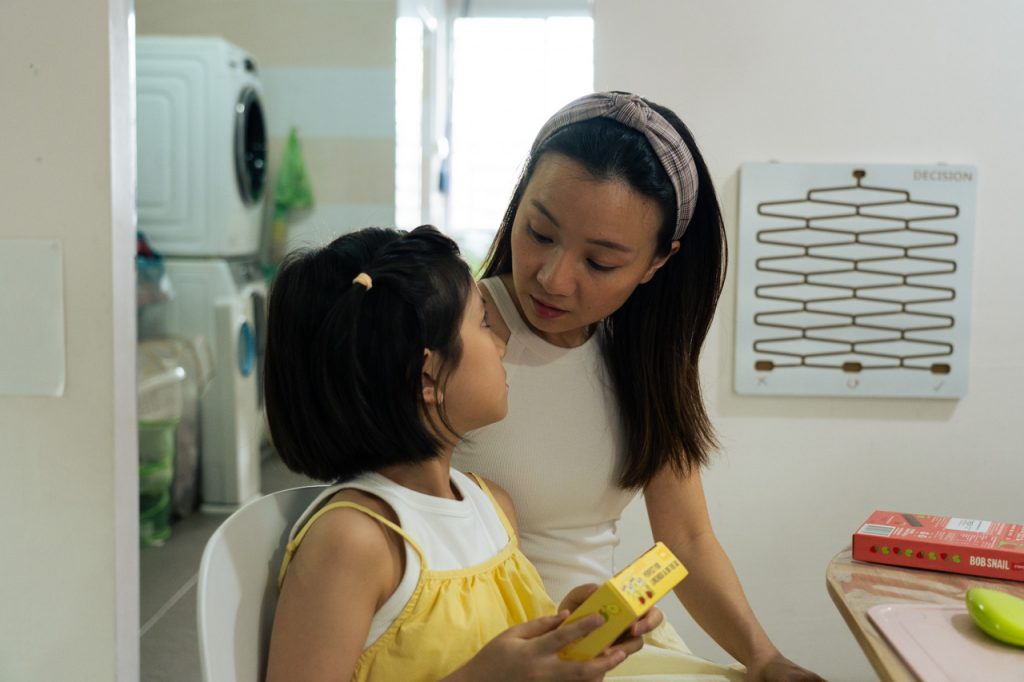
Identifying the triggering allergens was just the beginning of the battle. After taking her daughters for skin prick tests and adjusting their diets, Qiao Qing hoped for improvement. But she soon discovered that her second daughter’s eczema was also triggered by lingering fragrances in the air.
“I received a free packet of detergent from the supermarket, and I thought it would be safe to wash the curtains because [my daughter] was just a baby, so she can’t touch them,” she recalls.
“When I hung the curtains in her room, she started scratching like mad. Turns out, the floral scent in the air was the trigger.”
That’s when it hit her: even the most familiar household products—everything from cleaning supplies to the scented body wash she used—had to be swapped out. The cost of replacing all these everyday items was mounting, and it was becoming a heavy burden.
Of Trial and Error
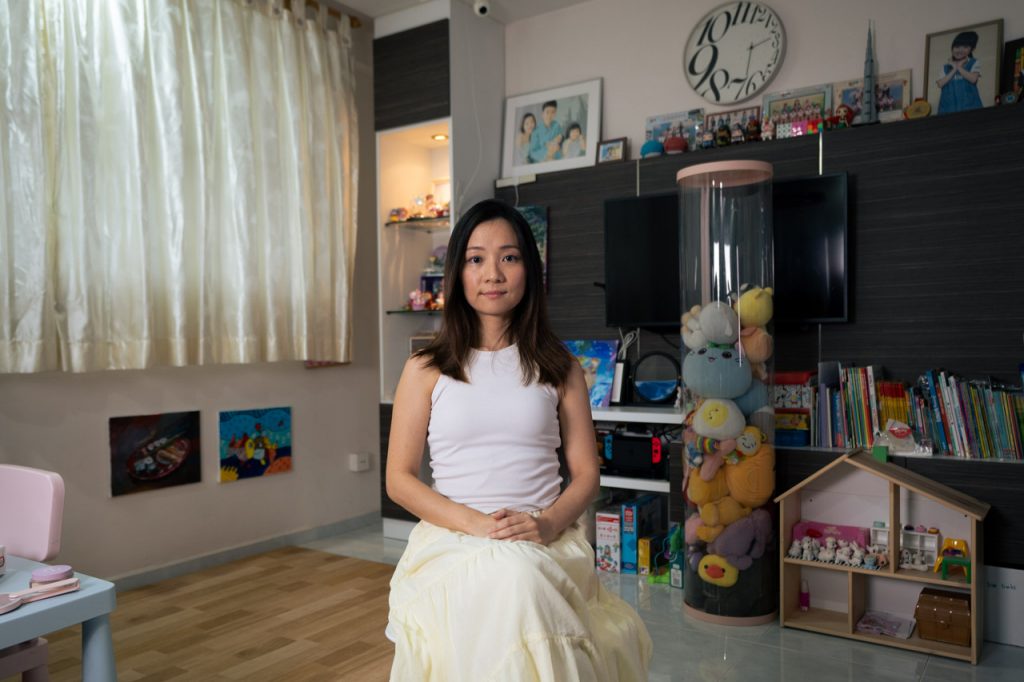
Qiao Qing’s home resembles a pharmacy. She’s tried a myriad of skincare brands till she gave up hope that any skincare product would ‘cure’ eczema.
“We don’t hope for a cure, but to find products that we can live with, safe for my children, and affordable?”
She shakes her head.
During her search, she recalls how Curel had worked on her years ago. As someone with sensitive skin, Curel facial care products were a mainstay for her. Having to constantly wear makeup for work, she needed to find a dedicated product that was gentle on her skin.
Sensitive skin yearns for ceramide—an essential ingredient that helps boost the skin’s natural barrier function and forms a protective armour that makes skin resistant to external irritants. After careful and thorough research by Kao’s researchers, it turns out that eucalyptus was the answer to help boost the skin’s natural ceramide production.
“[Curel’s products] worked well on my face even when I had hives or inflammation from allergic reactions. Because of how successful they were, I expanded my usage to their BB creams–a cosmetic product more lightweight than a foundation–and lip care products,” she explains.
After a year of trial and error with other products, Qiao Qing decided to try Curel on her children as well.
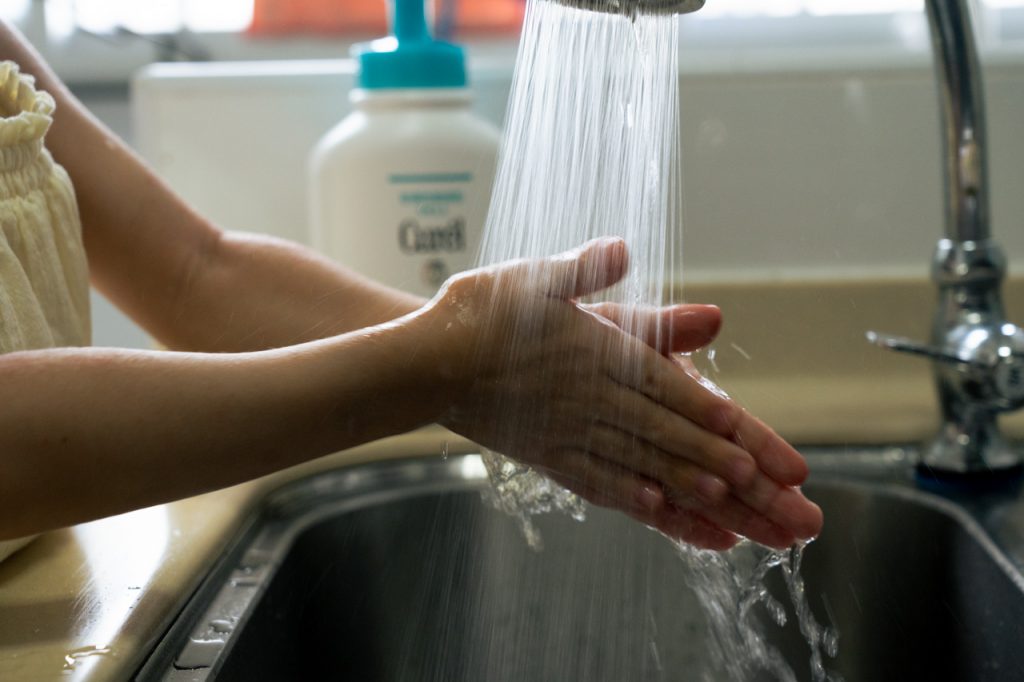
Regularly, they use the Intensive Moisture Care foaming body cleanser as a body wash and hand wash. Qiao Qing even leaves a bottle of it in her children’s preschool because conventional hand washes would irritate their skin.
“With eczema, washing is a painful affair because of the wounds. But thankfully, Curel’s foaming cleansers don’t sting their wounds at all. Now, we have a bottle of foaming cleanser beside every sink in our home and even at my parents’ houses so the kids can use them,” she says.
Aside from the product’s multipurpose use, Qiao Qing was just grateful that Curel’s products were easily available and affordable. All she had to do was buy the refillable packs when her stock ran out at home.
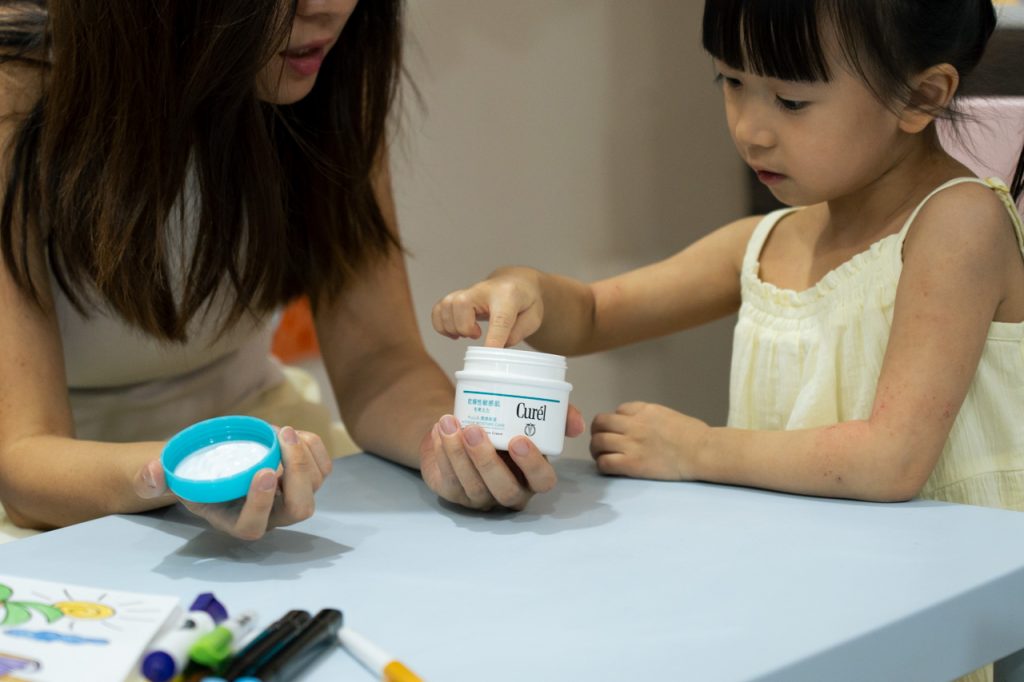
The accessibility was a comfort for her, especially after years of hunting for a product that works for her family. She can walk into any store and purchase the products off the shelf, leaving her more time to focus on her children.
Ursula, too, has a vast collection of skincare products built up over years of trial and error.
“I try one, it doesn’t work, so I buy another,” she shrugs. “The cycle just keeps repeating.”
It does take a bit of luck to find the right treatment, she admits. Her first consultation with a dermatologist at the National Skin Centre set her back a few hundred dollars, and all she got was advice (“Don’t do housework”) before getting sent home with topical steroids and instructions to follow up for further consultations.
Ursula never did.
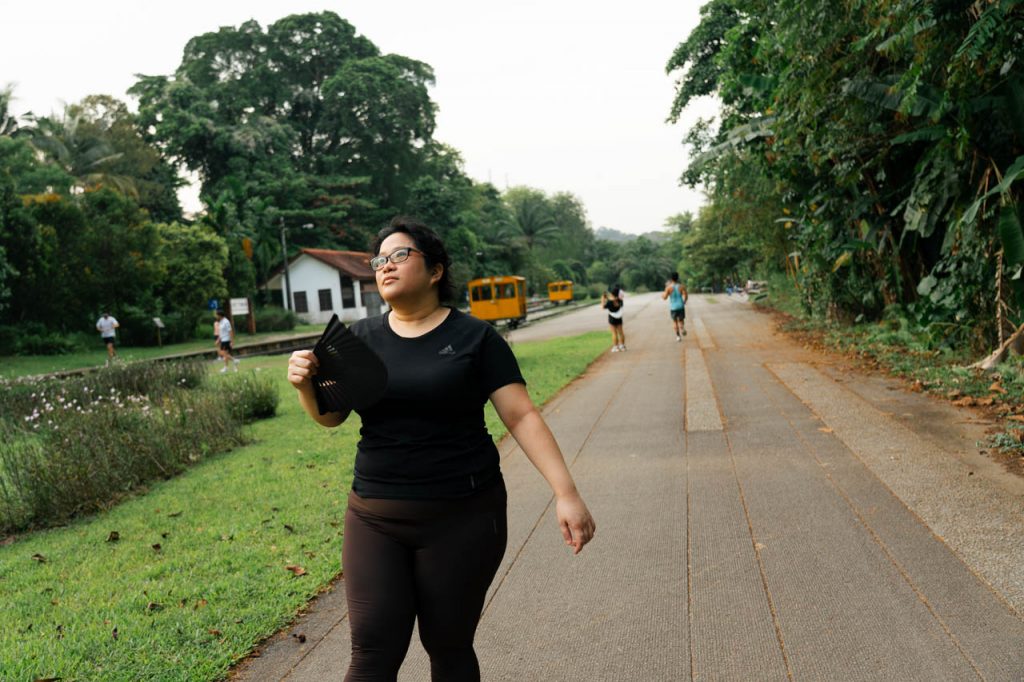
But when her flare-ups began again and she was recommended to another dermatologist, she took a chance, despite being on the fence. It turned out to be the best decision.
Her new dermatologist from National University Hospital (NUH) sat her down and spoke to her thoroughly for almost half an hour. At the end of the visit, he recommended her phototherapy.
Under the Skin
As their bank accounts bled dry each month, Qiao Qing and Ursula were left grappling with emotional breakdowns that pushed them to the brink.
Qiao Qing blamed herself for her children’s struggles with eczema. She spiralled into depression, particularly after the birth of her second child.
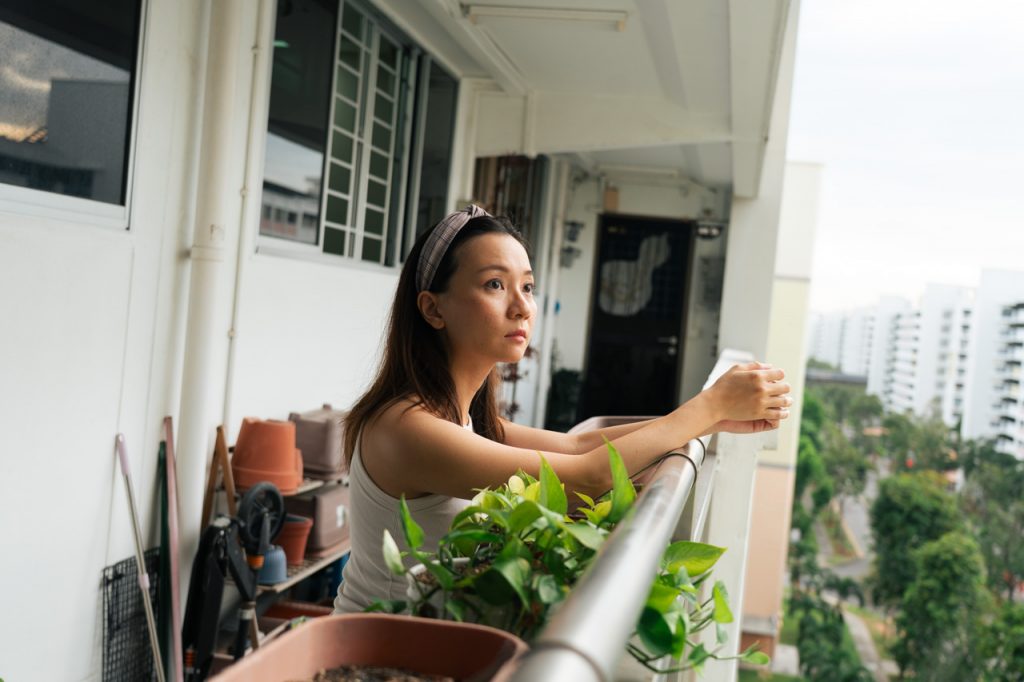
“I had so much guilt knowing that I passed on the condition—and that whatever measures I took during my pregnancy couldn’t stop my kids from inheriting eczema.”
Though she confided in her friends and family, no one else had children with eczema. She couldn’t find a support network that understood her struggles.
Ultimately, she decided to create a community for herself and other parents by founding Little Warriors, selling clothes—protective sleeves and pants—for children with eczema and sensitive skin.
“I know [my products] don’t cure eczema. But I’m encouraged when parents come to me and say the garments we sell are a lifesaver,” Qiao Qing smiles.
Ursula has also learnt to ignore the stares and snide remarks whenever she’s in public. Her patience, however, was tested the most by her family.
“They’d say I never scrub enough. My skin’s about to fall off! What do you mean I never scrub enough?” she huffs. She also has to deal with people who offer unwarranted advice on eczema that they think is “factually correct”, like drinking herbal tea.
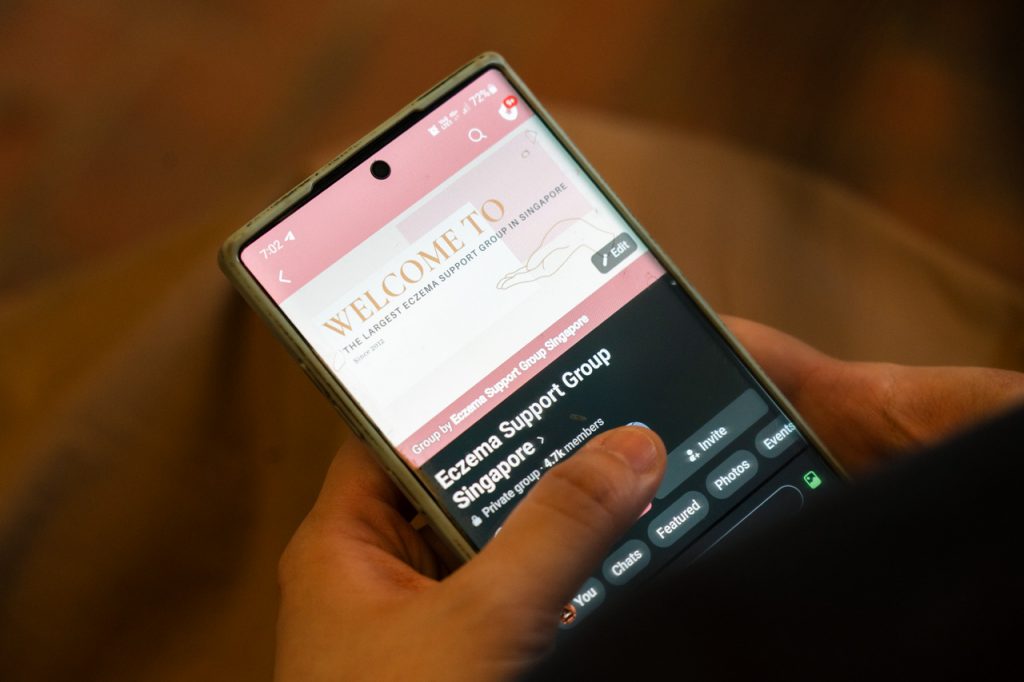
Frustrated, she tried to find other like-minded people. Unable to find a support system, she created one—Eczema Support Group Singapore—in 2012 to combat her loneliness and provide a safe space for others like her to connect and uplift each other.
Qiao Qing and Ursula have reached a stage where they’ve got their routines down to a pat. Despite the inconveniences they faced along the way, they’re glad that the eczema is more manageable now.
Don’t Worry, We’ll Manage
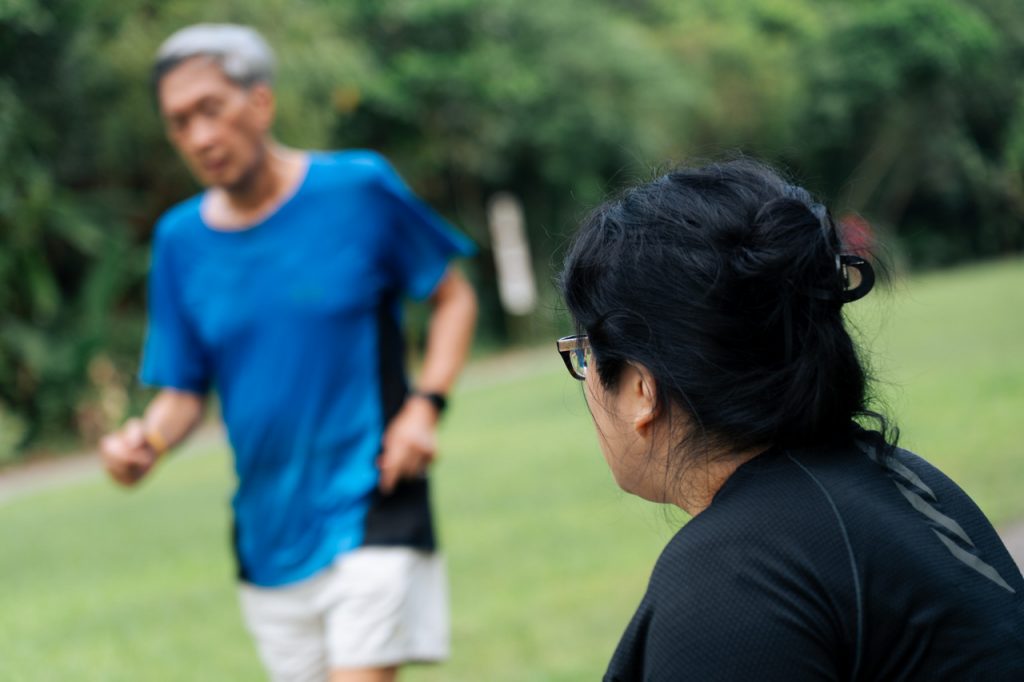
For Singaporeans with varying degrees of eczema, feeling ‘normal’ can often be a balancing act.
There’s a desire to feel like everyone else, to go about their daily lives—showing up at work, attending social gatherings—without the constant reminders of their skin condition dominating their thoughts.
While we take the simple act of getting through the day for granted, Qiao Qing is constantly vigilant for herself and her kids. Can my children eat this? Will this dry out their skin? The mental toll of hyper-awareness is not something many would understand.
The hidden cost? A life dictated by avoidance rather than ease.
“It’s not as simple as ‘just being itchy’. If you’ve never lived it, you’ll not know what it’s like,” Ursula says firmly.
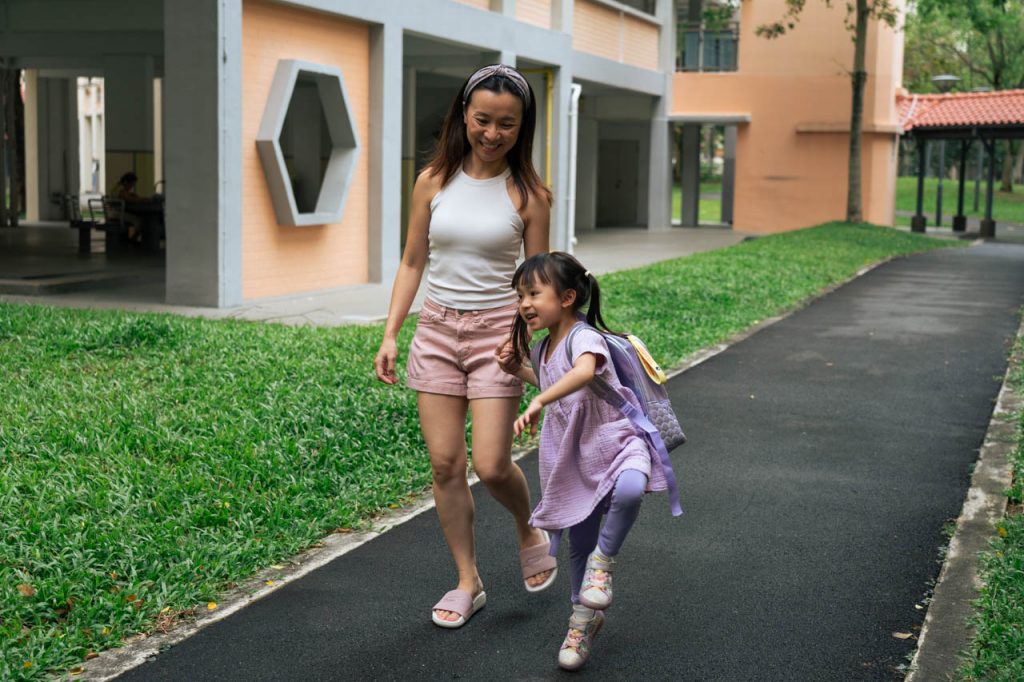
As we mindlessly pick skincare products off the shelf, people with eczema spend hours reading through ingredient lists and becoming unwitting lab rats just to find the right one for them. That’s why finding the right products—ones that actually work without causing further damage—feels like a rare win.
For Qiao Qing, discovering Curel’s gentle, fragrance-free formulas was a relief from an endless cycle of failed treatments. When everything else felt like a gamble, it was the only thing her family could finally count on.
But the real win goes beyond finding a reliable remedy—it was reclaiming the freedom to live without constant fear of what might trigger another flare-up.
It’s a reminder that for some, peace of mind is never a given, and sometimes, just getting through the day takes more strength than we’ll ever know.
